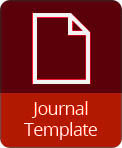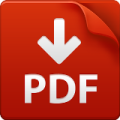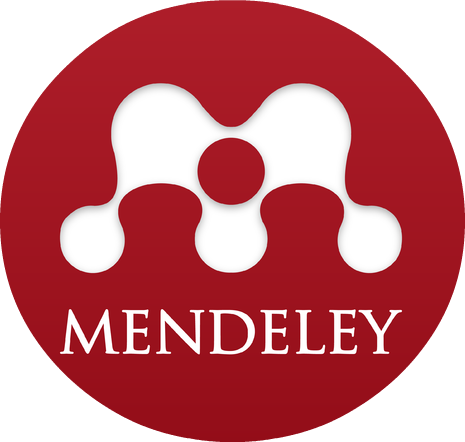The Significance of Science literacy in Biology Learning
Abstract
Keywords
Full Text:
PDFReferences
Adawiyah, R., & Wisudawati, A. W. (2017). Pengembangan Instrumen Tes Berbasis Literasi Sains : Menilai Pemahaman Fenomena Ilmiah Mengenai Energi. Indonesian Journal of Curriculum, 5(2), 112–121.
Anonim. (2023). Peringkat Indonesia pada PISA 2022 Naik 5-6 Posisi Dibanding 2018. Kementerian Pendidikan Dan Kebudayaan Nomor: 697/Sipers/A6/XII/2023.
Arisman, A., & Permanasari, A. (2015). Penerapan Pembelajaran Kooperatif Tipe STAD dengan Metode Praktikum dan Demonstrasi Multimedia Interaktif (MMI) dalam Pembelajaran IPA Terpadu untuk Meningkatkan Literasi Sains Siswa. Edusains, 7(2), 179–184. https://www.academia.edu/download/97764657/648cc191ba9505cf332d1bb87e0a9dfc976c.pdf
Asyhari, A., & Hartati, R. (2015). Profil Peningkatan Kemampuan Literasi Sains Siswa Melalui Pembelajaran Saintifik. Jurnal Ilmiah Pendidikan Fisika Al-Biruni, 4(2), 179–191. https://doi.org/10.24042/jpifalbiruni.v4i2.91
Gazali, Z., & Nahdatain, H. (2019). Pengembangan Media Pembelajaran Berbasis Video Pada Materi Biologi Sel Untuk Siswa Sma/Ma Kelas Xi Ipa. JUPE : Jurnal Pendidikan Mandala, 4(5), 236–238. https://doi.org/10.36312/jupe.v4i5.867
Guerrero, G., & Sjöström, J. (2024). Critical scientific and environmental literacies: a systematic and critical review. Studies in Science Education, 1–47. https://doi.org/10.1080/03057267.2024.2344988
Hanfstingl, B., Gnambs, T., Porsch, R., & Jude, N. (2023). Exploring the association between non-specialised science teacher rates and student science literacy: an analysis of PISA data across 18 nations. International Journal of Science Education, 1–19. https://doi.org/10.1080/09500693.2023.2262729
Irwandi, I. (2020). Strategi Pembelajaran Biologi (Lesson Study, Literasi Sains, dan Blended Learning) (A. Budiman (ed.); I). Pustaka Reka Cipta.
Junanto, T., Akhyar, M., Budiyono, B., & Suryani, N. (2020). Profile of Undergraduate Students as Prospective Science Teachers in terms of Science Literacy. 422(Icope 2019), 398–402. https://doi.org/10.2991/assehr.k.200323.158
Muhajarah, K., & Sulthon, M. (2020). Pengembangan Laboratorium Virtual sebagai Media Pembelajaran: Peluang dan Tantangan. Justek : Jurnal Sains Dan Teknologi, 3(2), 77. https://doi.org/10.31764/justek.v3i2.3553
OECD. (2023). PISA 2022 Result. https://www.oecd.org/publication/pisa-2022-results/
Putra, A. E., Rohman, M. T., Linawati, L., & Hidayat, N. (2023). Pengaruh Literasi Digital terhadap Kompetensi Pedagogik Guru. Murhum : Jurnal Pendidikan Anak Usia Dini, 4(1), 201–211. https://doi.org/10.37985/murhum.v4i1.185
Rabiudin, R., Agnesa, O. S., Afifi, E. H. N., & Rahmadana, A. (2023). Pelatihan Pembelajaran Literasi Sains Menggunakan Keterampilan Berpikir Tingkat Tinggi Sebagai Penyesuaian Terhadap Instrumen Assesmen Kompetensi Madrasah. I-Com: Indonesian Community Journal, 3(1), 88–102. https://ejournal.uniramalang.ac.id/index.php/i-com/article/download/2121/1495
Rahim, A. (2019). Prosiding Seminar Nasional: “Reaktualisasi Konsep Kewarganegaraan Indonesia.” In A. Wahyudi, R. Nababan, & F. Rachman (Eds.), Merefleksi Konsep Dasar Pendidikan Moral di Indonesia (pp. 39–42). Fakultas Ilmu Sosial Universitas Negeri Medan. http://digilib.unimed.ac.id/37491/1/Fulltext.pdf
Rakhmawan, A., Setiabudi, A., & Mudzakir, A. (2015). Perancangan Pembelajaran Literasi Sains Berbasis Inkuiri Pada Kegiatan Laboratorium. Jurnal Penelitian Dan Pembelajaran IPA, 1(1), 143. https://doi.org/10.30870/jppi.v1i1.331
Rohmawati, I. H., & Gayatri, Y. (2020). Analisis Literasi Sains Pembelajaran Abad Xxi Pada Matapelajaran Biologi Sma Di Gresik. Jurnal Pedago Biologi, 8(1), 38–48.
Saleh, A. R. (2016). Pengembangan Perpustakaan Digital. Tangerang Selatan: Universitas Terbuka, 2, 480 hlm., 21 cm.
Santiani, S., Peniati, E., & Rusilowati, A. (2019). Supervisi Tiga Tahap Penggunaan Laboratorium IPA Strategi Praktikum Bersama Dosen, Guru dan Siswa. Prosiding Seminar …, 798–805. https://proceeding.unnes.ac.id/index.php/snpasca/article/view/373%0Ahttps://proceeding.unnes.ac.id/index.php/snpasca/article/download/373/224
Sumanik, N. B., Nurvitasari, E., & Siregar, L. F. (2021). Analisis Profil Kemampuan Literasi Sains Mahasiswa Calon Guru Pendidikan Kimia. Quantum: Jurnal Inovasi Pendidikan Sains, 12(1), 22. https://doi.org/10.20527/quantum.v12i1.10215
DOI: http://dx.doi.org/10.31332/kd.v5i1.8459
Refbacks
- There are currently no refbacks.
Copyright (c) 2024 Syarif Rizalia, Zakky Fahrizi, Sukmawati Sukmawati

This work is licensed under a Creative Commons Attribution-ShareAlike 4.0 International License.
Kulidawa indexed by:

Jurnal Kulidawa under by Creative Commons Attribution-ShareAlike 4.0 International License.


2.png)






